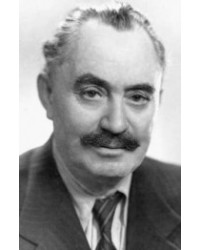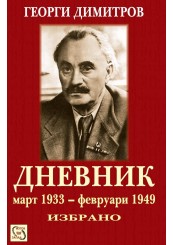Georgi Dimitrov

Georgi Dimitrov Mikhaylov (June 18, 1882 – July 2, 1949), was a Bulgarian communist politician. He was the first communist leader of Bulgaria, from 1946 to 1949. Dimitrov led the Communist International from 1934 to 1943. He was a theorist of capitalism who expanded Lenin's ideas by arguing that fascism was the dictatorship of the most reactionary elements of financial capitalism.
imitrov was born in Kovachevtsi in today's Pernik Province, the first of eight children, to working class parents from Pirin Macedonia (a mother from Bansko and a father from Razlog). His mother, Parashkeva Doseva, was a Protestant Christian, and his family is sometimes described as Protestant. The family moved to Radomir and then to Sofia. Dimitrov trained as a composer and became active in the labor movement in the Bulgarian capital.
Dimitrov joined the Bulgarian Social Democratic Workers' Party in 1902, and in 1903 followed Dimitar Blagoev and his wing, as it formed the Social Democratic Labour Party of Bulgaria ("The Narrow Party"). This party became the Bulgarian Communist Party in 1919, when it affiliated to Bolshevism and the Comintern. From 1904 to 1923, he was Secretary of the Trade Unions Federation; in 1915 (during World War I) he was elected to the Bulgarian Parliament and opposed the voting of a new war credit, being imprisoned until 1917.
During the Leipzig Trial, Dimitrov's calm conduct of his defence and the accusations he directed at his prosecutors won him world renown. On August 24, 1942, for instance, the American newspaper The Milwaukee Journal declared that in the Leipzig Trial, Dimitrov displayed "the most magnificent exhibition of moral courage even shown anywhere." In Europe, a popular saying spread across the Continent: “There is only one brave man in Germany, and he is a Bulgarian.”
After his fame grew in the wake of the Leipzig Trial, Joseph Stalin appointed Dimitrov the head of the Comintern in 1934, just two years before the outbreak of hostilities in Spain. In 1935, at the 7th Comintern Congress, Dimitrov spoke for Stalin when he advocated the Popular Front strategy, meant to represent Soviet ideology as mainstream Anti-Fascism — one that was later employed during the Spanish Civil War.


